As markets shift, technologies advance, and customer demands fluctuate, organisations are constantly seeking ways to adapt and stay ahead. Agile transformation has emerged as a popular approach, promising increased flexibility, faster delivery, and improved customer satisfaction. However, despite its potential benefits, many organisations encounter challenges that hinder their effective transition to agile methodologies. These obstacles often leave a sour taste in the mouth, leading some to abandon the transformation altogether. But should they really give up so easily?
Embracing agile transformation requires more than just implementing new processes or adopting a trendy methodology. It demands a fundamental shift in mindset and culture—a shift that many organisations struggle to achieve. Common challenges such as resistance to change, lack of alignment across teams, and inadequate understanding of agile principles can derail even the most well-intentioned efforts.
However, rather than viewing these challenges as insurmountable roadblocks, organisations should see them as valuable learning opportunities. Each setback provides insights into what went wrong and how to course-correct for future success. Instead of abandoning agile transformation altogether, organisations should consider giving it another go, armed with the lessons learned from their previous attempts.
One way to ensure a more successful agile transformation is through comprehensive training and coaching. Organisations can benefit greatly from partnering with experts like ITSM Hub, which offers Agile Scrum certification training and coaching tailored to the specific needs of each organisation. By investing in the development of their people's capabilities, organisations can foster a culture of continuous learning and improvement—a culture that is essential for sustaining agile transformation in the long run.
Central to ITSM Hub's approach is helping organisations understand what agile truly is—and perhaps more importantly, what it isn't. Agile is not just about implementing a set of practices or following a rigid framework; it's about embracing a mindset of collaboration, adaptability, and customer-centricity. By cultivating this agile mindset, organisations can overcome the common pitfalls that often derail transformation efforts.
One of the key lessons learned from failed agile transformations is the importance of fostering a culture of transparency and trust. In many cases, resistance to agile methodologies stems from a lack of understanding or fear of the unknown. Through effective communication and leadership, organisations can address these concerns and create an environment where teams feel empowered to embrace change and experiment with new ways of working.
Another common pitfall is the tendency to focus solely on process improvements without addressing underlying cultural or organisational issues. Agile transformation is not just about implementing new tools or workflows; it's about fundamentally changing how teams collaborate, communicate, and deliver value to customers. By taking a holistic approach that addresses both cultural and process-related aspects, organisations can ensure a more sustainable and successful transformation journey.
Ultimately, agile transformation is a journey, not a destination. It requires ongoing commitment, dedication, and perseverance. While challenges and setbacks are inevitable, they should not deter organisations from pursuing their agile ambitions. By leveraging lessons learned from past experiences and investing in the development of their people's capabilities, organisations can overcome obstacles and realise the full potential of agile methodologies.
In conclusion, agile transformation is not without its challenges, but the rewards are well worth the effort. By embracing a mindset of continuous learning and improvement, organisations can navigate the complexities of agile transformation and emerge stronger and more resilient than ever before. With the right training, coaching, and mindset, organisations can overcome the obstacles that stand in their way and truly unleash the power of agile.
Our Agile Scrum Essentials and Agile Scrum Master certifications courses are a great place to start. Enrol in our public courses or bring us onsite to deliver an engaging learning experience for your team!














